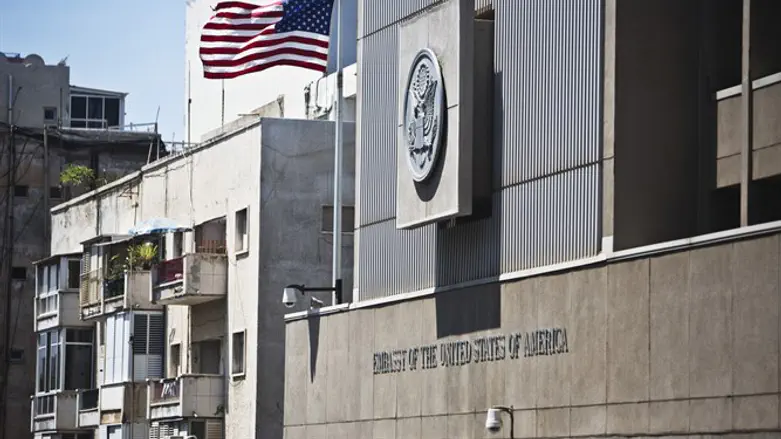
Officials in the US State Department and the Israeli government are concerned that Israeli bureaucracy and local zoning regulations could seriously delay the planned relocation of the American embassy from Tel Aviv to Jerusalem, Channel 2 reported Tuesday night.
Last December, President Donald Trump ordered the embassy moved to Jerusalem, fulfilling his 2016 campaign promise to implement the 1995 Jerusalem Embassy Act, a bipartisan law requiring that the US embassy in Israel be located in Jerusalem, Israel’s capital city.
Secretary of State Rex Tillerson initially claimed the embassy move would take roughly two years, but later backtracked and said that plans to complete the move in even three years were “ambitious”.
In February, however, the State Department said that it would transfer its Israeli mission to Jerusalem in two stages.
The first stage would see the US consulate building in Jerusalem’s Arnona neighborhood designated as the new embassy. Ambassador David Friedman’s office would be transferred to the Arnona facility, along with a limited number of other staff members.
The remaining embassy operations would be relocated to the new embassy sometime around late 2019, after an annex to the Arnona facility is refitted to serve as part of the new embassy.
US officials had set a May 14th opening date for the new embassy – coinciding with Israel’s 70th Independence Day.
On Tuesday, however, Channel 2 reported that senior officials are concerned that Israeli red-tape may nix the May 14th unveiling.
According to the report, State Department officials have requested permission to construct a roughly 10-foot wall around the new embassy building, as well as pave a new road to increase access to the facility.
Director-General of Israel’s Foreign Ministry, Yuval Rotem, has warned Finance Minister Moshe Kahlon (Kulanu) that without special dispensation from the government to circumvent the normal bureaucratic channels, the embassy cannot be opened by May 14th.
“The process of requesting alterations the current [zoning] plans will likely take a long time,” wrote Rotem, “preventing the work from being completed in time for the embassy move. Until the changes are completed, the compound will not meet the requirements of the State Department for the American Embassy.”
While the future embassy compound – currently the consulate compound – can be rezoned to permit the alterations, without a special waiver it will require approval by the National Planning and Building Committee. The committee is scheduled to meet next only in April, after the upcoming weeklong Passover festival.
